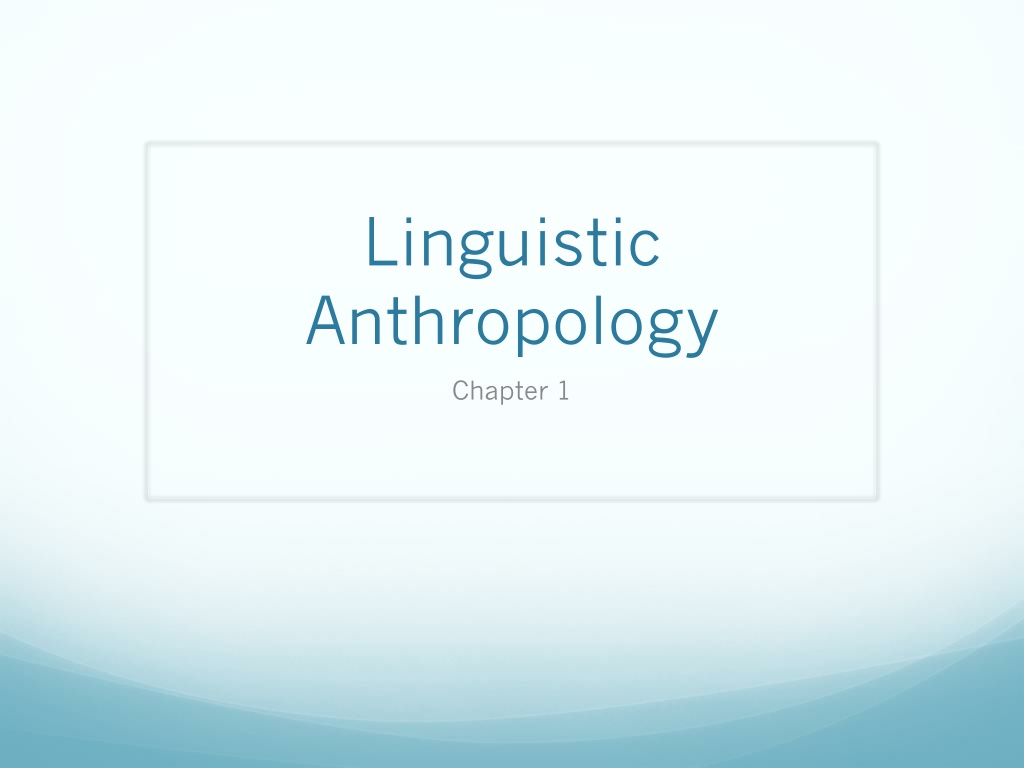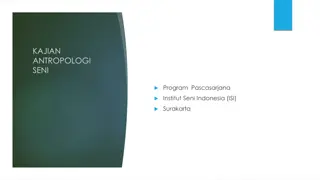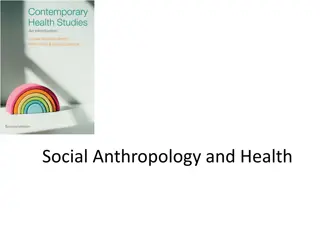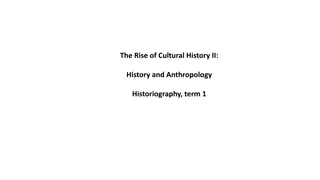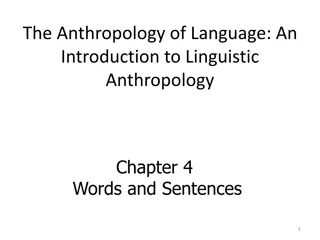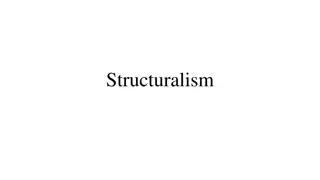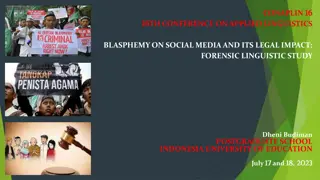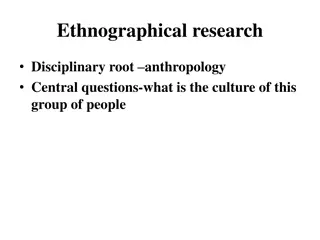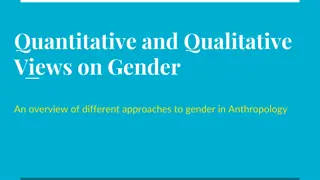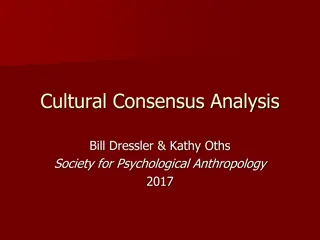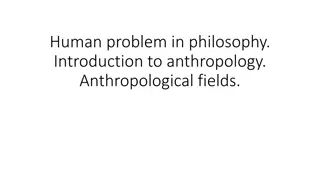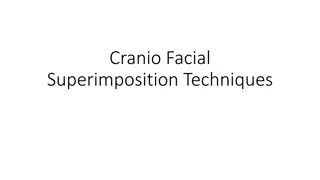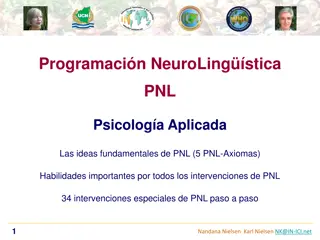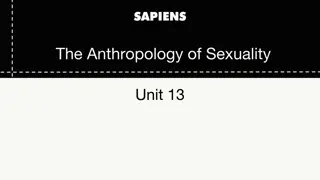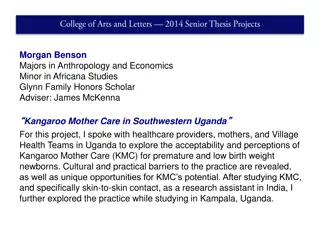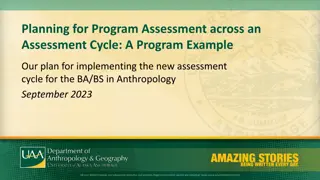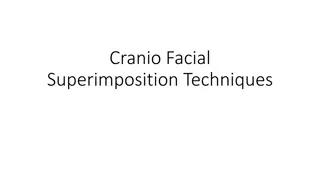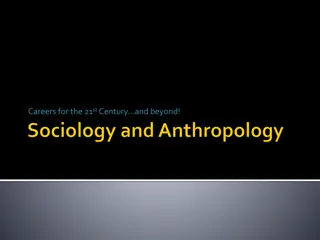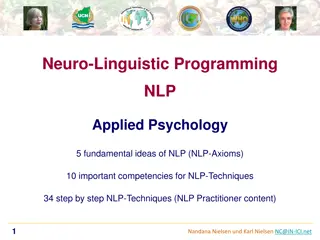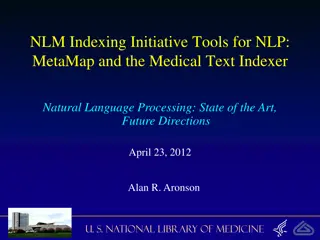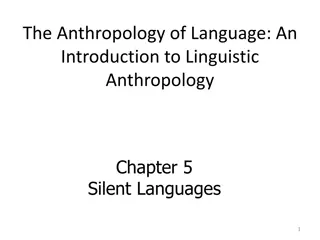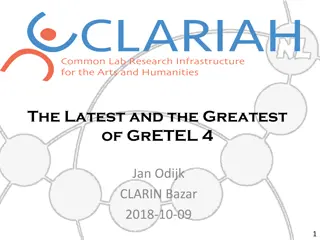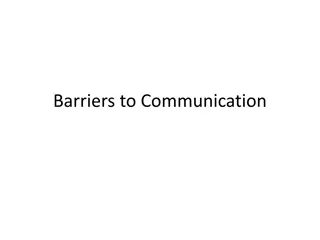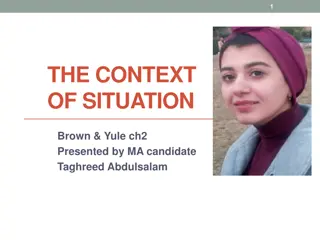Understanding Linguistic Anthropology and Anthropology: A Comprehensive Overview
Delve into the realm of linguistic anthropology and anthropology to explore the study of humans, culture, language, biology, artifacts, and more. Discover the four fields of anthropology, the holistic approach, and the importance of cultural relativism while avoiding ethnocentrism. Learn how linguistic anthropology analyzes language structures, cultural contexts, power dynamics, and cultural identities. Embrace the comparative approach to appreciate cultural diversity without judgment.
Download Presentation

Please find below an Image/Link to download the presentation.
The content on the website is provided AS IS for your information and personal use only. It may not be sold, licensed, or shared on other websites without obtaining consent from the author. Download presentation by click this link. If you encounter any issues during the download, it is possible that the publisher has removed the file from their server.
E N D
Presentation Transcript
Linguistic Anthropology Chapter 1
Introduction What is linguistic anthropology? What is anthropology?
Introduction Anthropology is the study of humans and can include Culture Language Biology Artifacts
Introduction Anthropology has four fields (four-field approach) Cultural anthropology (studies culture, behavior, and beliefs) Archaeology (studies culture of people no longer alive; analyzes artifacts) Physical/Biological (studies human origins, variation, and evolution Linguistics (studies language, language change, and cultural context Anthropologists have a base in all four and a specialization in one
Linguistic Anthropology Linguistic Anthropology Analyzes: Structure and patterns of language Language in cultural context How language is learned and how it changes How language is used as power How language is connected to cultural identity The ideas we hold about language
Anthropology Anthropology is holistic It tries to see the whole picture This is why we use all four fields We also use other disciplines And we apply it to the real world
Anthropology We will use the comparative approach We will compare different languages and cultures We will focus on similarities and not only on differences We will use cultural relativity Different cultural ideas can seem weird to us We will refrain from judgment We will try to see things through the eyes of those who practice them
Anthropology We will avoid ethnocentrism Judging others by one s own terms Two types: 1. using your own system to understand what someone else is doing 2. insisting that only your system is the correct way to interpret something
Anthropology Example: The Buddhist religion views the soul as continuing on past death; this is similar to Christian views But Buddhists believe in reincarnation and several different types of hell; this is not correct because the Christian view says those who die either go to heaven or hell
Anthropology Example: This island culture uses shells as currency, very similar to our practice of using paper or metal as currency This culture does not have real money because shells aren t worth anything
Frames of Reference We have to shift our frames of reference: How we see the world The lenses that we look through (determined by culture) Language and culture are not the same thing, but they are interrelated Sapir (1884-1939) discussed worldview: how we experience the world around us How might language affect or be affected by worldview?
Frames of Reference If we study other languages and other cultures, do we have to change our cultural identities? Can we shift our frames of references without drastically changing our worldviews?
Video Video Log: Fluent in 11 Languages: https://www.youtube.com/watch?v=gpSCTr0JfLo Questions: What technique does he use to learn languages? How does this video show the ability to switch worldview or frames of reference?
Assignment ICA#1: Read Shakespeare in the Bush and discuss: Is the understanding of Hamlet the same cross- culturally? What are examples of shifting frames of reference? What are examples of cultural relativity?
Fieldwork Anthropologists collect data through fieldwork, or going into areas and working with a cultural group Participant observation: immerse yourself into the culture and participate in daily life as if you were native (involves learning language) Observations Interviewing key respondents or key informants Must avoid enthocentrism
Fieldwork Fieldwork began with Franz Boaz (1858-1942), the Father of American Anthropology Until him, the practice was armchair anthropology Can you really learn about a culture by reading about them in a book? There was also a tendency to categorize people, and Boaz rallied against this It s all about cultural relativity!
Fieldwork There can be cultural miscommunications. Read box on pg. 8
Fieldwork Fieldwork is also considered a right of passage and an initiation for becoming a real anthropologist
Ethics When conducting fieldwork, there are ethical considerations Work must not harm (and should benefit!) those studied Must keep information confidential Must adhere to strict rules of conduct
Ethics Researchers get IRB approval before collecting any data Must collect informed consent from all participants before collecting data Informs them of risks and benefits Explains the project Explains they can stop participating at any time
Ethical Dilemmas Read the two ethical dilemma situations (I will put them on overhead). What would you do in these situations?
Linguistics Introduction What is a language? What are the rules for defining a language? Video: What Makes a Real Language: http://ed.ted.com/lessons/are-elvish-klingon- dothraki-and-na-vi-real-languages-john-mcwhorter
How Do We Get New Words? The word robot : http://ed.ted.com/lessons/mysteries-of-vernacular- robot-jessica-oreck-and-rachael-teel
Homework #1 Read article Tripping and Tricking (on portal) and complete the questions. This is due next class. 1. What is a key respondent? 2. What were some challenges with respondents the author chose? 3. Describe 3 examples of fieldwork we discussed in lecture. 4. What was the single most important technique for building trust? 5. What are some of the author s ethical dilemmas?
